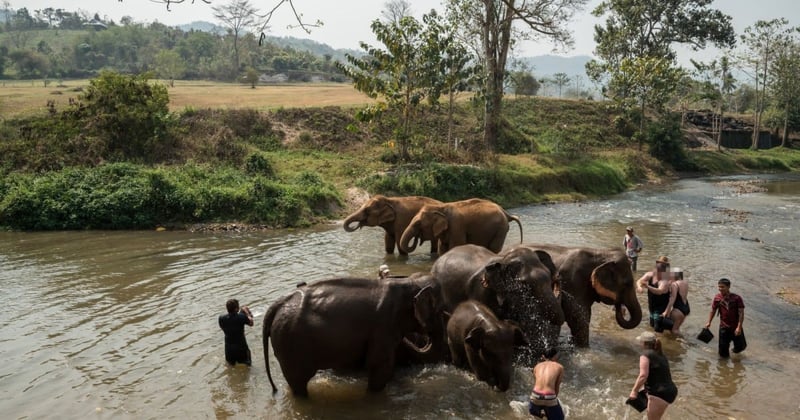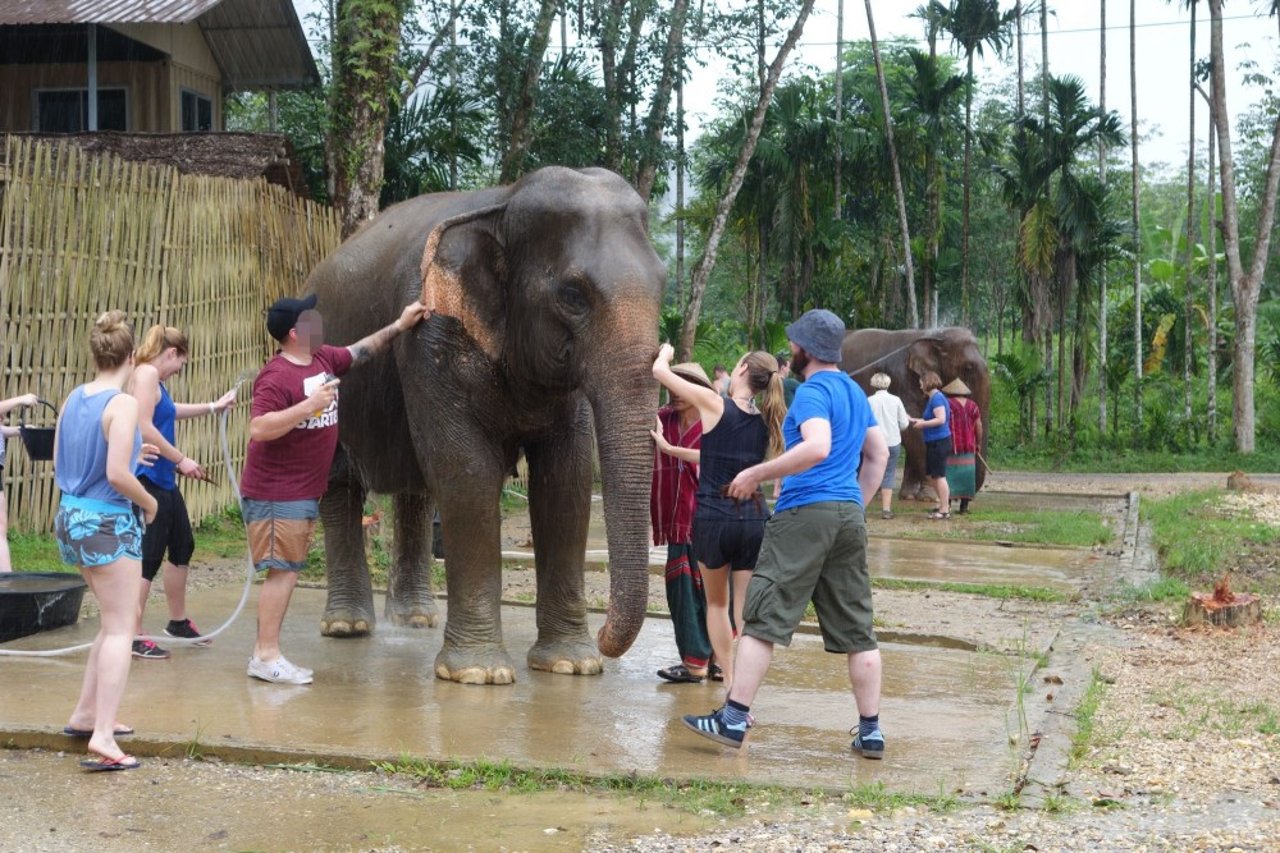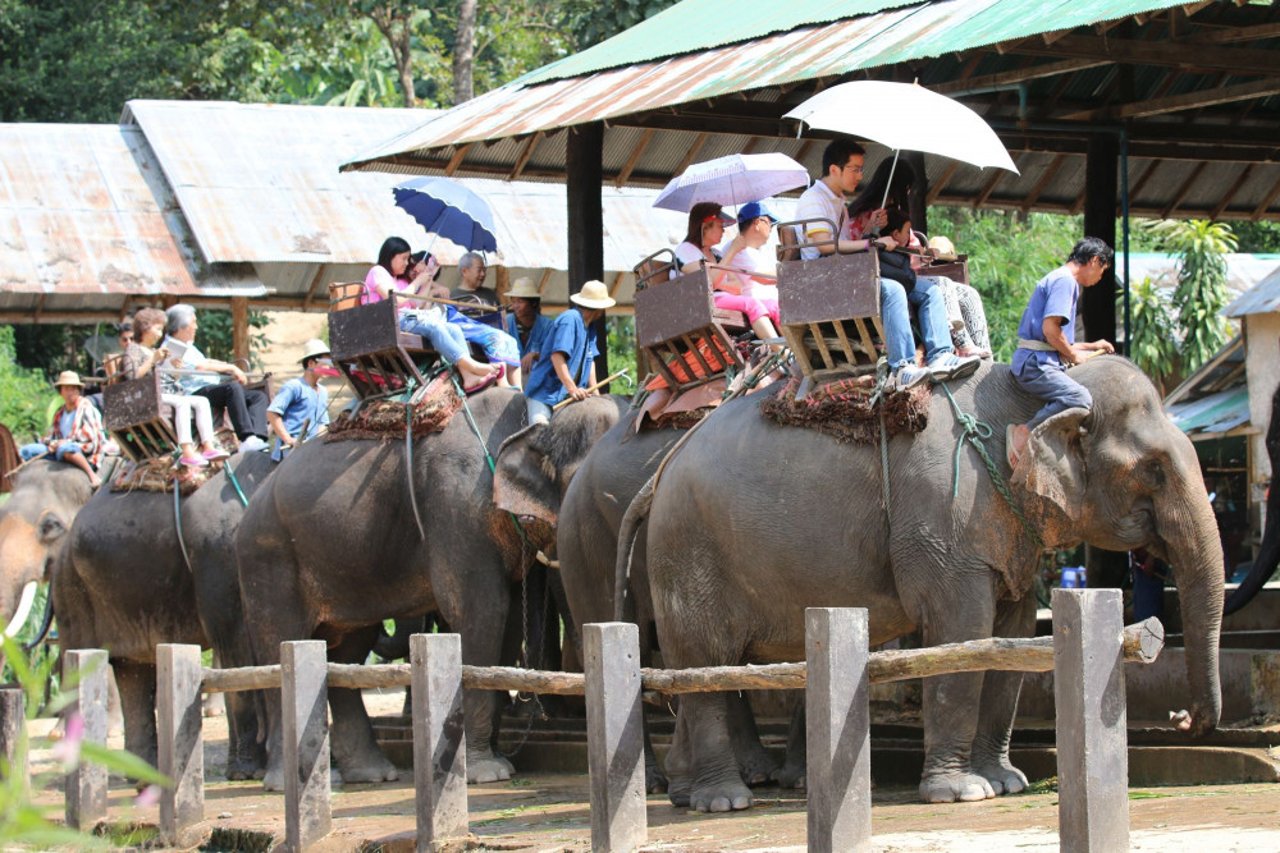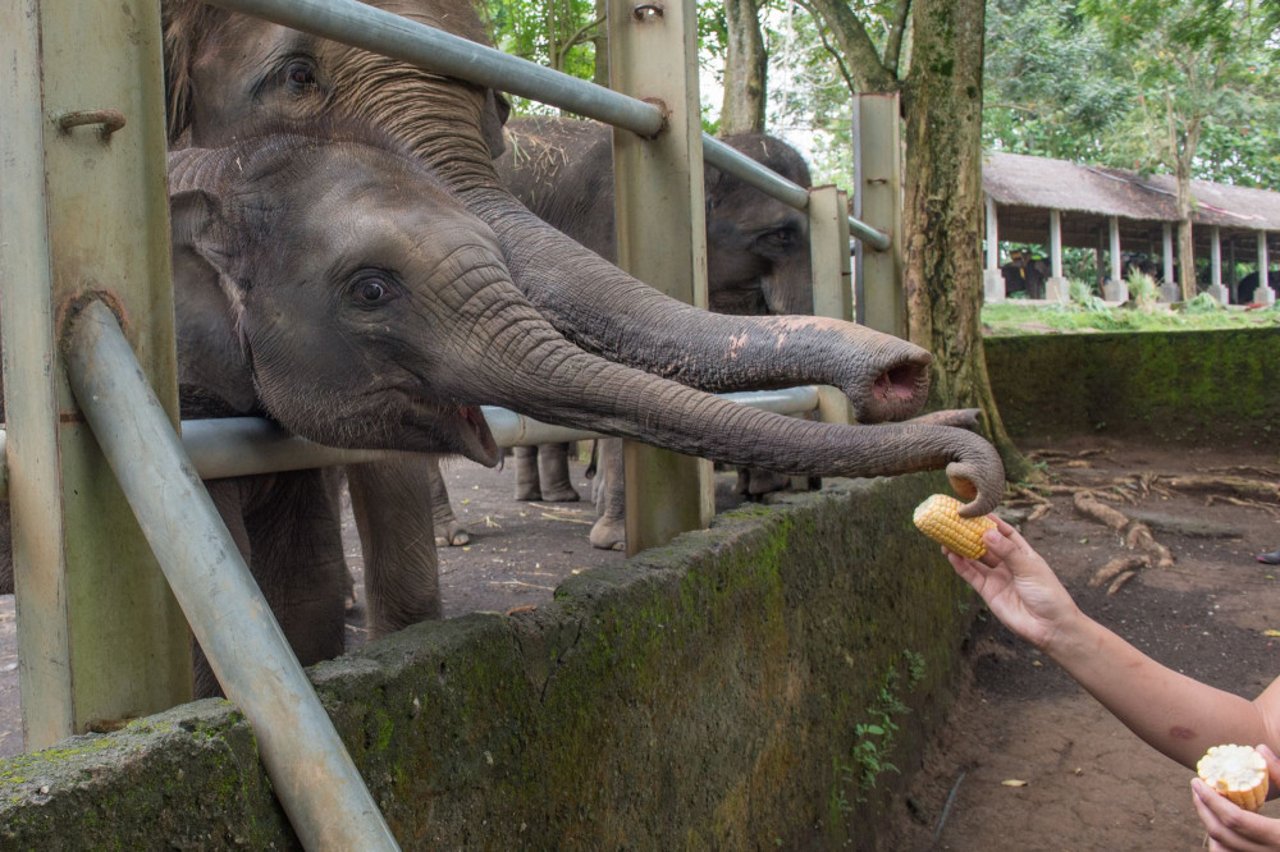
Following discussions with global animal welfare organization “Plan Yourself Free” campaign ends using elephants
World Animal Protection is praising the decision by JPMorgan Chase to suspend its advertising campaign featuring direct contact with captive elephants. The “Plan Yourself Free” campaign for Chase Private Client featured a couple’s direct contact with elephants on a volunteer vacation. In the ad, the couple are seen washing an elephant by hand, a harmful, but common practice at some captive elephant venues. The elephants are also seen walking in a line holding the tail of the elephant in front, which is not a typical behavior of mature elephants in the wild, but of elephants who have been tortured into that behavior.
Following discussions with World Animal Protection, JPMorgan Chase will cease the ads in July 2019.
“JPMorgan Chase made a responsible decision to remove these ads which sent a dangerous message that direct contact with wildlife is acceptable,” said World Animal Protection Executive Director Alesia Soltanpanah. “Elephants are trained using harsh and cruel methods to perform unnatural behaviors and interact directly with people in the manner portrayed in this ad. When people see elephants used in live shows, offered for rides, used for selfie props, or washing interactions, these elephants have been cruelly abused and forced to perform these actions.”
“We thank World Animal Protection’s leadership for reaching out to us,” said Jeff Pilarcik, a managing director in marketing at Chase. “While we took great care in the filming, we learned more about the other side of elephant tourism and have ended the ad campaign.”
World Animal Protection’s, Taken for a Ride report found that up to 550,000 wild animals are exploited in the tourism industry worldwide. Three out of four venues studied found conservation and welfare issues including damage physically and psychologically to elephants. Tourist demand for direct interaction with elephants such as riding and feeding leads to a lifetime of abuse. Elephant washing as shown in the ad forces elephants to remain in water longer than they would naturally and reinforces demand for elephants in captivity. The constant presence of strangers requires elephants to be controlled by keepers through harsh obedience training from a young age that includes severe restraining, pain and discomfort.
Elephants forced into direct contact with people are anything but free. Taken from their natural environments and exploited for entertainment and profits, captive elephants tamed for entertainment never truly experience a life free from suffering and cruelty. Close interaction with captive elephants also regularly leads to injuries and fatalities of keepers and sometimes of visitors.
Through its Wildlife. Not Entertainers campaign, World Animal Protection engages with travel companies around the world, revealing the hidden cruelty behind the scenes at wild animal entertainment venues, to help bring about a world where animals live free from suffering.
To date, more than 220 travel companies around the world including Education First, Thomas Cook, TripAdvisor, World Expeditions, and Extraordinary Journeys have ended sales and promotion of elephant rides and shows by signing World Animal Protection’s elephant-friendly pledge or making a commitment to wildlife-friendly travel policies.
“We thank World Animal Protection’s leadership for reaching out to us, said Jeff Pilarcik, a managing director in marketing at Chase. “While we took great care in the filming, we learned more about the other side of elephant tourism and have ended the ad campaign.


